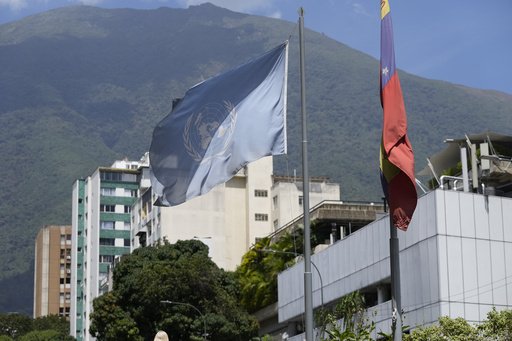
The U.N. human rights office in Venezuela has recently resumed some of its operations, according to remarks made by the agency’s chief. This comes after a significant interruption in services when the Venezuelan government, led by President Nicolás Maduro, expelled its personnel months ago, accusing them of colluding with conspirators and terrorist organizations.
Volker Türk, the U.N. High Commissioner for Human Rights, made this announcement during a session in Geneva attended by representatives from the 47-member Human Rights Council. He expressed deep concern over the worsening human rights situation in Venezuela following the controversial presidential election in July, in which both Maduro and the opposition proclaimed victory.
Türk highlighted incidents of excessive force and violence during protests that erupted in response to the election results in July and August, with armed groups loyal to the government allegedly involved. He noted that the authorities have arrested around 2,000 individuals since the election, raising alarm over the arbitrary nature of many of these detentions. This group includes adolescents, young adults, opposition members, human rights advocates, journalists, and lawyers, as well as uninvolved bystanders.
Furthermore, Türk urged for a swift and thorough investigation into the deaths of over 20 individuals amid the unrest following the July 28 election.
The closure of the U.N. office in Caracas was ordered earlier this year due to rising fears about government repression of alleged dissidents as the country approached elections. This decision was influenced by a strong public backlash, particularly after the arrest of a well-known human rights lawyer and her family members.
Back in 2019, Maduro’s administration had consented to collaborate with the U.N. high commissioner to set up a local technical advisory office in Venezuela. However, Foreign Affairs Minister Yván Gil accused the office of becoming an “advocate for coup plotters and terrorist factions” rather than working towards the improvement of human rights, although no specific examples of misconduct were provided.
In his address, Türk expressed hopes that the Caracas office could soon operate at full capacity again. However, Ambassador Alexander Yánez, representing Maduro at the Geneva session, indicated that Türk’s critical observations regarding human rights in Venezuela would hinder the effectiveness of the local office. He characterized these criticisms as “self-serving narratives” from sectors of the opposition, asserting that they undermine the impartiality and independence of the U.N. work in the country.
